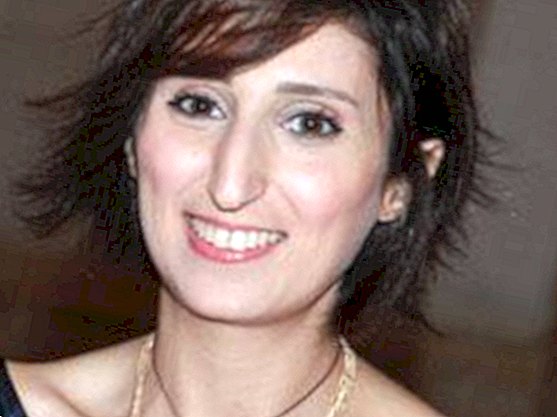Arab Spring: What did he bring to the women?


Nadine Abou Zaki has a doctorate in philosophy, sculptor, editor-in-chief of the pan-Arab women's magazine "Al Hasnaa" and founder of "The New Arab Woman Forum" (NAWF) - a top-class platform for the transformation of women's roles in the Arab world
© The New Arab Woman ForumChroniquesDuVasteMonde: During the upheavals in the Arab world, many women took to the streets, even for their rights as a woman. Were they successful?
Nadine Abou Zaki: The women were in the front row, but once the revolutions were over they were marginalized again. History shows that revolutions never take place without women, but when it's time to hand over power, they are pushed aside.
ChroniquesDuVasteMonde: Where was that most noticeable?
Nadine Abou Zaki: Egypt experienced the worst backlash. Before the revolution, twelve percent were women in parliament, after the victory of the Islamists there were only two percent, because the women's quota was abolished. Women were increasingly victims of violence, including sexual violence. But now we were pleasantly surprised: the new constitution is a victory for the women. 20 articles of the constitution benefit them, among other things, the state guarantees protection against violence.
ChroniquesDuVasteMonde: Has the image of women changed as a result of the revolutions?
Nadine Abou Zaki: We are experiencing new women's roles, new visions, a new culture. Clichés and taboos were broken. Women used to play traditional roles in revolutions, they were responsible for supplying the revolutionaries. This time, they took to the streets. Now we are experiencing a new wave of activism: women are more politically active than ever, including young women and rural women. In Yemen, they are participating in the National Dialogue Conference, which aims to create a new state order. Even in Saudi Arabia, there are reforms: In September, a law was passed against domestic violence.

When the dictators were overthrown in Tunisia, Egypt and Libya, many women also fought for democracy and women's rights
© dpa / AP Photo / Nariman El-Mofty
ChroniquesDuVasteMonde: The website of The New Arab Woman Forum states that the last few decades have brought women more education and participation. How did that happen?
Nadine Abou Zaki: Governments have recognized that they need to empower women to drive development in the Arab world. Women make up half the population, you can not do without them. In addition, the rulers in the individual states are interested in a modern image. Therefore, they have invested in education: Between 1980 and 2010, the number of students between 15 and 19 years has doubled, now more girls than boys start studying. Women entrepreneurs are promoted because they create jobs and bring themselves and the country forward.
ChroniquesDuVasteMonde: How will the region continue?
Nadine Abou Zaki: We are currently experiencing the rise of the individual, who has a voice, not only in the private, but also in the public domain. People have found a taste for freedom and their power. But we are talking about evolution, nobody knows what will happen. Maybe even the next generation will really benefit.

"Al Hasnaa"
ChroniquesDuVasteMonde: You are editor-in-chief of the women's magazine "Al Hasnaa", which has been sold throughout the Arab world since 1909. What makes "Al Hasnaa" different from other women's magazines?
Nadine Abou Zaki: "Al Hasnaa" is characterized by courage. We discuss all important topics without taboos, but always respect the living conditions of women. We make you think, provoke without shock. We want to convey a positive image of women as protagonists of change. Other media like to portray women as victims.
ChroniquesDuVasteMonde: What is the topic spectrum?
Nadine Abou Zaki: It's about culture, social affairs, business and politics, but also about fashion and beauty. I wanted to get rid of the recipes, but I was told that you can not do without it.
"Al Hasnaa provokes without shock"
ChroniquesDuVasteMonde: Will "Al-Hasnaa" be censored somewhere?
Nadine Abou Zaki: There is a special issue for Saudi Arabia that does without sex issues. Otherwise "Al-Hasnaa" could not be sold there.
ChroniquesDuVasteMonde: Finally, a personal question: You are editor-in-chief, sculptor, essayist, teach philosophy at the American University in Beirut, are involved in the "The New Arab Woman Forum" and are the mother of two children. How does it work?
Nadine Abou Zaki: It's all a matter of passion. And the kids are in school until 4pm!










